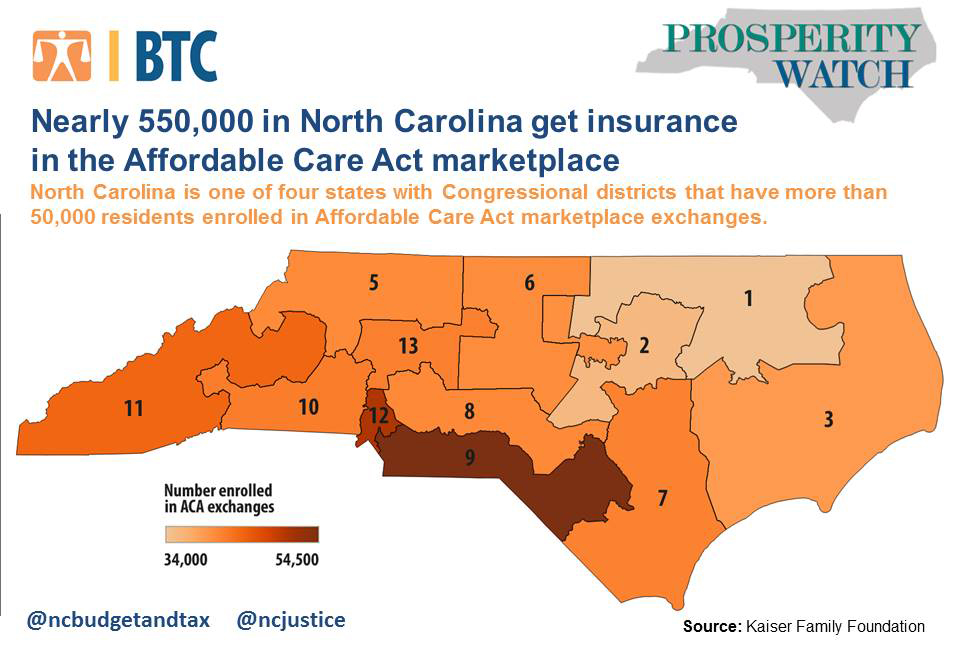Prosperity Watch (Issue 69, No. 2)
Jan. 17, 2017
The U.S. Congress took the first steps last week to repeal health insurance coverage for millions of Americans, a policy decision that will significantly reduce coverage for North Carolina families’ basic health care needs, increase the costs of uncompensated care, and reduce employment and growth in the health care industry in the state.
According to new research from the Kaiser Family Foundation, North Carolina is one of four states with Congressional districts that have more than 50,000 residents enrolled in the marketplace exchanges that were set up under the Affordable Care Act. The two districts are District 9, representing Fayetteville and Charlotte, and District 12, representing Charlotte. Of note, given this geography, is that veterans are among those who will be negatively affected by repeal of ACA. In North Carolina, an estimated 6,000 veterans received the premium tax creditsavailable under ACA that cover nearly 80 percent of the cost of the total monthly premium. Nearly 550,000 North Carolinians in total purchased insurance in the Affordable Care Act marketplace.
The Urban Institute last month released analysis pointing out that those who are currently enrolled in the marketplace won’t be the only ones affected by the repeal of the Affordable Care Act. The analysis found that the uninsured rate would double nationally. More than 1 million North Carolinians would lose health insurance under the repeal. This is due to the loss of premium tax credits and the repeal of the individual mandate, as well as the near collapse of non-group health insurance markets.
The number of uninsured is estimated to increase to higher than it was before the passage of the Affordable Care Act. The total number of uninsured in the state would rise to 2.16 million, nearly double what it is today. North Carolina’s uninsured rate in 2015 was 11.2 percent, which is already higher than the national average of 9.1 percent.
Families, communities and business pay a high price when people do not have access to health insurance coverage and thus face barriers to receiving preventive care.
 Justice Circle
Justice Circle 
